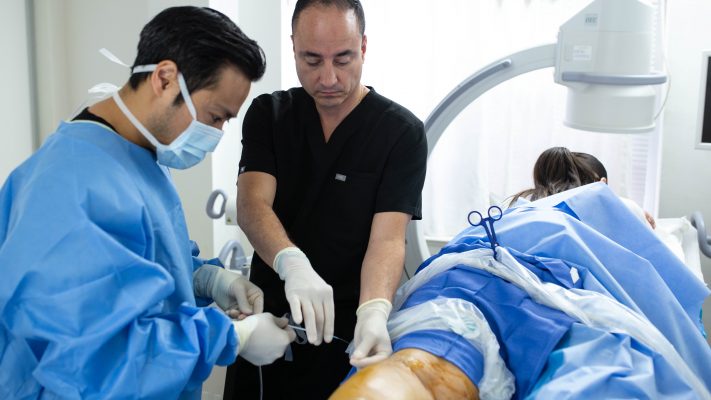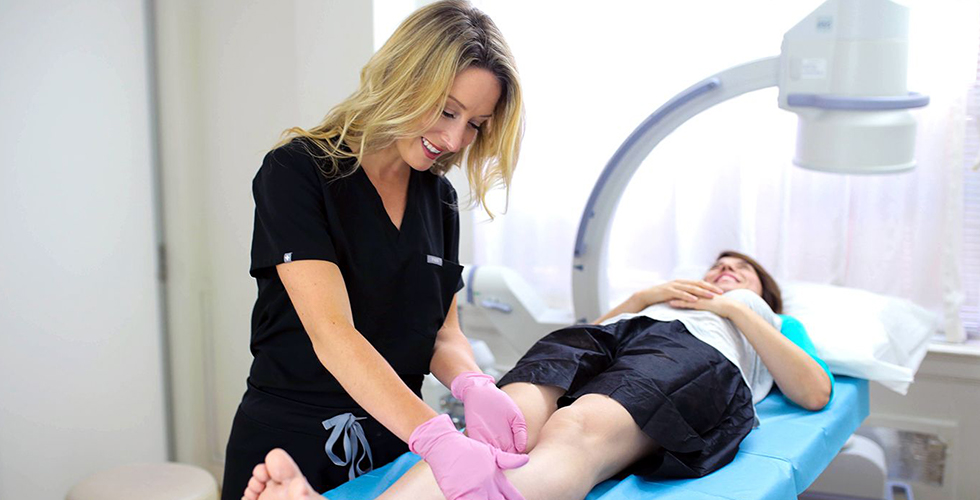Normally, a series of valves in the veins of the lower extremities act to stimulate blood to return to the heart, preventing it from flowing back to the feet and legs. For a variety of reasons, over time these valves can become weak or damaged, which leads to circulation. In addition, the muscles surrounding the veins have a fundamental role in the periodic compression of the veins, which helps move the blood upwards. A combination of weakened valves and lack of muscle movement can cause blood to pool in the veins of the foot and lower leg. If this occurs consistently over time, it can cause several problems. Blood accumulation leads to high venous pressure (venous hypertension) and venous insufficiency. There is big difference in varicose veins vs varicose.
Common causes of venous insufficiency and hypertension
Although some cases occur due to heredity (some families unfortunately are naturally predisposed to venous insufficiency), other causes of exacerbation may be:
- Familial predisposition, congenital defect of vein valve (more common, over 80%)
- Obesity
- Advanced age.
- Pregnancy
- Deep vein thrombosis (DVT).
- Gender (female predominance).
Although maintaining a healthy weight and exercising regularly can help reduce the likelihood of developing venous insufficiency, in many cases the causes are reduced to factors that go beyond the control of the individual, including genetics. Also some varicose vein removal cream will useful.
Symptoms of venous insufficiency and hypertension
Symptoms vary in severity and presentation among individuals, in almost all cases the varicose veins symptoms worsen over time without proper treatment. Most of people ask are varicose veins bad. Yes it is. One can also justify it by seeing varicose veins before and after treatment result.
Some of the common symptoms include:
- Varicose veins – these are enlarged veins that often protrude from the surface of the skin, appearing as bluish ridges and bumps that many people find distressing. Not only do some people find them aesthetically unpleasant, they can also throb and itch, as well as being extremely painful if accidentally hit or hit.
- Calf pains and muscle cramps – pain is a common feature of chronic venous insufficiency. Lower legs can hurt while standing or sitting. In some cases this can be quite severe and disabling.
- Pain with prolonged position and improving with walking.
- Swollen legs and ankles.
- Stains, brown on the lower legs, and discoloration of the skin.
Varicose vein treatment
There are many best treatments for varicose veins. One of the most common outcomes of chronic venous insufficiency and hypertension is the development of varicose veins that can be particularly distressing. Not only can they be terribly painful, they can also seem unattractive, which means that many sufferers end up with diminished self-esteem and poor body image. There is a selection of minimally invasive varicose veins and venous insufficiency treatments available that have a high success rate and relatively few side effects.
Then your doctor will put a compress to avoid bleeding and will tell you to put on your compression stockings to improve and accelerate the effects, however, sclerotherapy requires some patience on the part of the patient, since the effects of the treatment are not immediate.


No comments:
Post a Comment